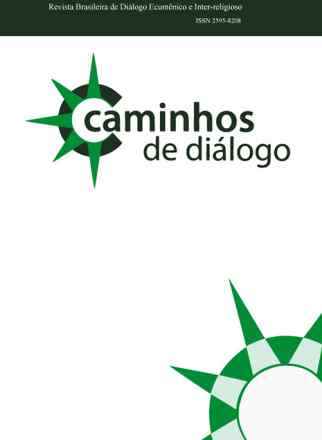O conceito de missão integral na Teologia e a responsabilidade ecológica da Igreja cristã
Caminhos de Diálogo
O conceito de missão integral na Teologia e a responsabilidade ecológica da Igreja cristã
Autor Correspondente: Alana Carla Lucena Farias | [email protected]
Palavras-chave: Teologia, missão integral, cristianismo, consciência ambiental, responsabilidade ecológica
Resumos Cadastrados
Resumo Português:
O presente artigo tem por escopo abordar a responsabilidade ecológica como uma das principais missões do meio cristão evangélico. A objetivação deste texto busca trazer um panorama geral a respeito da missão integral, tendo como um dos primeiros expoentes o encontro celebrado em Lausanne em 1974 (Lausanne I), como o realizado em 1989 (Lausanne II), onde se discute o conceito de tal missão, abordando o objetivo de Cristo não ser a salvação unicamente da alma, mas sim uma perspectiva ampliada, alcançando a integralidade humana e os vários âmbitos da sociedade, inclusive sua relação com o meio ambiente. Após a análise desses temas, tem-se a percepção prática de como as igrejas poderão efetivar esses princípios no âmbito ecológico, ampliando o ensino pela educação ambiental. O entendimento do evangelismo com intuito redentor ampliado, isto é, buscando a salvação completa da alma, corpo e relações sociais dos seres humanos, pode vir a ampliar a atuação dos cristãos na sociedade. Constatou-se por fim, devido à relação da missão integral diretamente com a agenda ecológica, as possibilidades de uma nova visão conjuntural e renovadora dos conceitos pétreos das igrejas, onde é possível a manutenção das suas convicções históricas e necessária uma postura inovadora ao tratar de problemas sociais.
Resumo Inglês:
This article aims to approach the ecological responsibility as one of the main missions of the evangelical Christian. The objectification of this text seeks to provide an overview of the integral mission, having as one of the first exponents the meeting held in Lausanne in 1974 (Lausanne I), as held in 1989 (Lausanne II), where the concept of such mission is discussed, addressing the goal of Christ not to be the salvation of the soul alone, but a broader perspective, reaching human completeness and the various spheres of society, including its relationship with the environment. After the analysis of these themes, there is a practical perception of how the churches can implement these principles in the ecological scope, expanding the teaching by environmental education. The understanding of evangelism with an expanded redemptive intention, that is, seeking the complete salvation of the soul, body and social relations of human beings, may come to expand the role of Christians in society. Finally, due to the relationship of the integral mission directly with the ecological agenda, the possibilities of a new conjunctural and renewing vision of the stone concepts of the churches, where it is possible to ma

